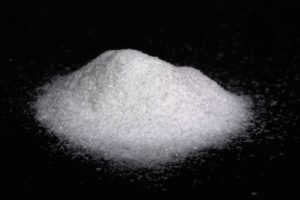 Artificial sweeteners are very popular, with sucralose (Splenda) being the most widely used artificial sweetener in the US. However, there is increasing evidence that these sweeteners are linked to health problems. Recently, a study found that basically all safety claims by the manufacturer of sucralose are nonsense (deceptive advertising!), and that the sweetener instead can cause health harms.
Artificial sweeteners are very popular, with sucralose (Splenda) being the most widely used artificial sweetener in the US. However, there is increasing evidence that these sweeteners are linked to health problems. Recently, a study found that basically all safety claims by the manufacturer of sucralose are nonsense (deceptive advertising!), and that the sweetener instead can cause health harms.
Health harms from sucralose include: damages DNA (it's genotoxic), it causes "leaky gut" (makes the wall of the gut more permeable), bioaccumulates in the body, leukemia, alters gut microbes, drives glucose intolerance, causes weight gain, increases appetite. decreases insulin sensitivity, metabolic dysfunction, enters into breastmilk of nursing mothers, promotes intestinal inflammation, and more.
Of course the European Union has stricter standards regarding sucralose than the US. (Why am I not surprised?).
The following two articles discuss different aspects of sucralose and its health harms. The one from US Right to Know is worth reading in full.
Excerpts from Medical Xpress: Chemical found in common sweetener damages DNA
A new study finds a chemical formed when we digest a widely used sweetener is "genotoxic," meaning it breaks up DNA. The chemical is also found in trace amounts in the sweetener itself, and the finding raises questions about how the sweetener may contribute to health problems. ...continue reading "Health Risks From Popular Artificial Sweetener"
